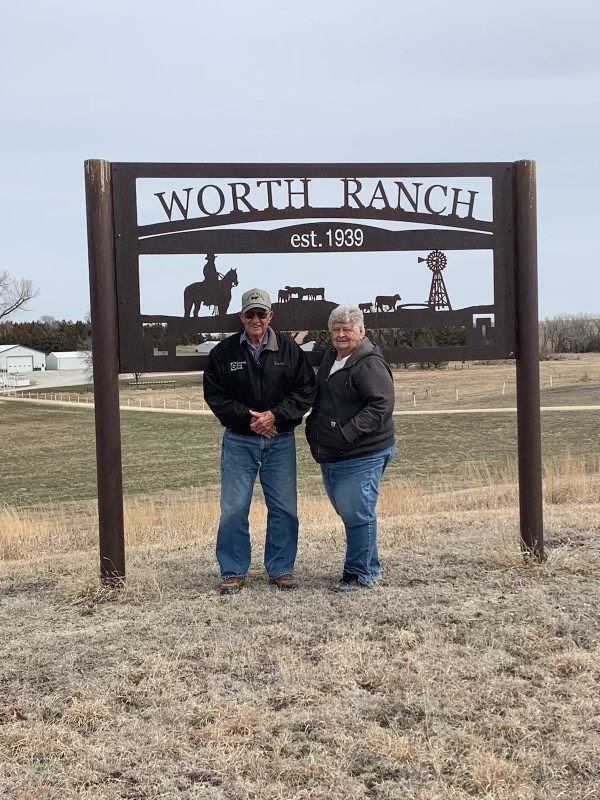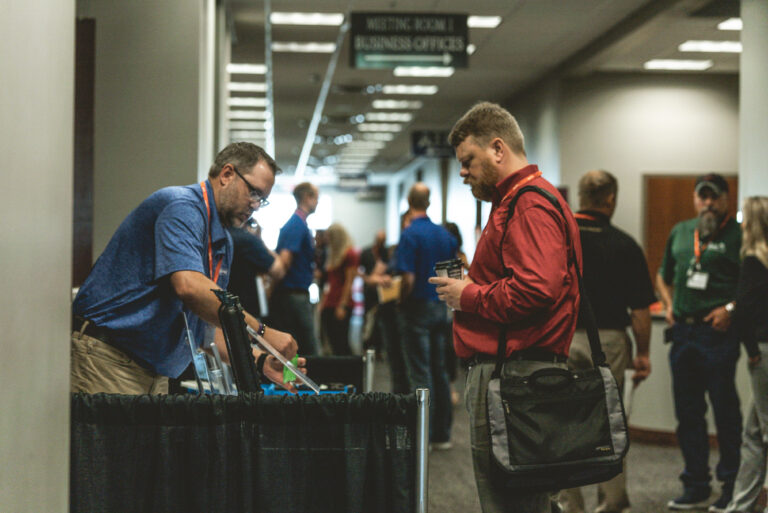
Leopold Conservation Award
The Leopold Conservation Award Program recognizes agricultural landowners actively committed to a land ethic. Sand County Foundation, national sponsor American Farmland Trust and several prominent state conservation partners present the prestigious honor, which consists of $10,000 and a crystal award, in settings that showcase the landowners’ achievements among their peers.
The Leopold Conservation Award is a productive investment in private lands conservation. It recognizes and celebrates extraordinary achievement in voluntary conservation by private landowners, inspires countless other landowners by example and provides a prominent platform by which agricultural community leaders are recognized as conservation ambassadors to citizens outside of agriculture. Finally, the program builds bridges between agriculture, government, environmental organizations, industry and academia to advance the cause of private lands conservation. Watch this video to learn more about the Leopold Conservation Award.
2024 Nebraska Leopold Conservation Award Recipients
Worth Ranch Springview, Nebraska

When Malvern “Cork” Worth purchased his first piece of land in 1962, he recognized the need for change.
The 1,424 acres in Keya Paha County was a far cry from the productive grassland it is today. It had been overstocked with beef cattle and horses with poor fencing and water distribution.
Cork’s intuition told him his cattle needed to be rotated through more than one pasture during the grazing season. He would embrace and improve upon that concept once he and wife Janet began practicing managed grazing in the 1970s.
“Ten acres to the cow, and never take more than 50 percent of the grass in a given year” was the hard-and-fast stocking rate they established. This simple yet stern method of grazing management has created a resilient deep-rooted plant community that can rapidly recover from drought.
“We could have run more cattle over the years but trying to squeeze every last productive dollar out of your grazing resource year after year is a recipe for failure,” Cork explained.
The Worths saw growing native prairie and perennial grass as the best use of their land from economic and environmental standpoints. With grass their only marketable commodity they stopped raising hogs, sheep, and dairy cattle to focus solely on Angus beef cattle.
“We wanted to develop some of the best Angus cattle in the industry, and it wasn’t even a question that we had to have the best grass resource to do this,” Janet said.
As the Worths expanded their ranch to 8,000 acres they installed a livestock water pipeline system and cross fencing that allows them to move cattle between 40 pastures. Each has two water tanks fed by a combination of electric submersible wells, windmills, and solar wells. The rotational grazing system has created a mosaic of habitat types for beneficial pollinators, turkeys, grassland birds, and deer.
More than 22,000 trees have been planted on Worth Ranch since 1971. Trees control wind erosion, enhance wildlife habitat, and provide livestock protection in the form of shelter belts. Drip irrigation and mulch to conserve water were added on several of the belts to encourage growth and vigor of trees. There’s also hardly a noxious weed to be found on Worth Ranch thanks to their early detection/rapid response weed management method.
Through innovative conservation practices, Worth Ranch has been able to endure climate extremes. Its well-managed and conservatively stocked pastures and meadowlands have allowed the Worths to maintain their cattle numbers during hot, dry summers without relying on outside sources for winter feed.
Through meticulous breeding and performance records, the Worths established a productive and profitable Angus herd that has helped them deal with the ebbs and flows of the ever-changing cattle market.
In recent years they have taken a step back in the beef business to help the next generation of ranchers. While downsizing their own herd, they pasture cattle for five local families during the grazing season. This allows the Worths to continue their grass management efforts while reducing their workload during the winter. It also creates awareness of how sound conservation can create abundant, resilient grassland on their own ranches.
To apply or nominate for the Leopold Conservation Award email NebraskaLCA@sandcountyfoundation.org.

